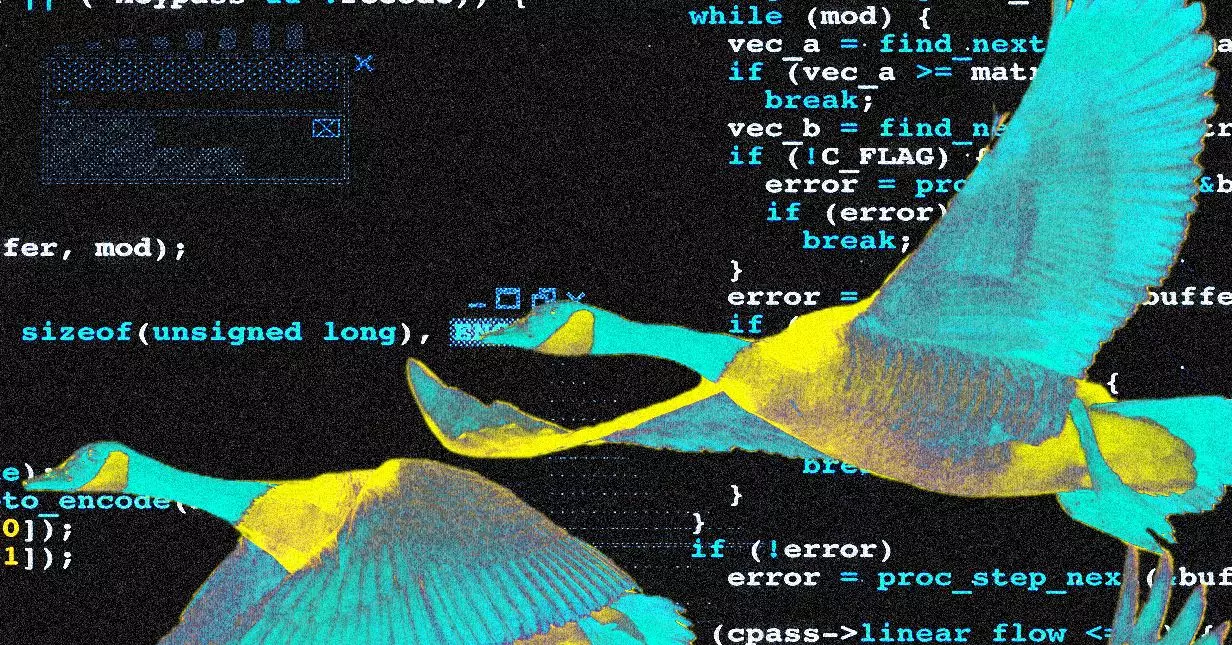Recent developments in the tech landscape have underscored the transformative potential of artificial intelligence in software development. At a recent hackathon hosted by the finance firm Block, developers showcased an impressive array of prototype tools, ranging from a database debugger to an app automating Bitcoin support. Such an event is not merely a showcase of innovation; it exemplifies how strategic AI implementation can amplify productivity within organizations. Notably, the driving force behind this productivity surge was Goose, Block’s proprietary AI agent that accelerates coding and facilitates tasks like data visualizations. This hackathon marked a significant leap in productivity, highlighting how the right tools and technologies can elevate the collective creative output of a company.
Meet Goose: The AI Revolution
Goose is not just another coding tool; it represents a paradigm shift in how developers interact with technology. Traditionally, coding has required a high level of expertise, but Goose democratizes the process by enabling not just engineers but also non-technical staff to contribute to app development and feature prototyping. The results have been palpable—more ideas are surfacing for production consideration than ever before. Jackie Brosamer, who leads the AI and data platform at Block, noted a remarkable shift in workflow, stating, “We’ve always had really strong hack weeks, but this one was at another level.” This shift indicates that AI tools like Goose can optimize collaboration and creativity beyond conventional boundaries.
Challenges and Opportunities
While Goose is a powerful asset, the journey has not been without its challenges. Initial tests revealed occasional mistakes, such as inadvertent file deletions—an issue reminiscent of earlier AI applications, which often struggled with accuracy. Developers have learned to mitigate these risks by operating in environments where changes can be reversed. This trial-and-error phase is telling of the typical hurdles any groundbreaking technology faces during its nascent stages. It underscores the importance of iterative learning and agile methodologies in tech development, even when advanced AI is at play.
Shaping the Future of Development
The consensus among industry leaders is that AI agents will dramatically alter the software development landscape. Block’s CTO, Dhanji Prasanna, along with CEO Jack Dorsey, sees a future where enhanced AI capabilities will revolutionize operations by late 2024. Their belief aligns with the broader trend of corporations such as Google and Microsoft also embracing agentic coding tools. The strategic foresight in building an AI agent like Goose shows an understanding that technological disruption is not a distant point on the horizon but an imminent reality. As AI continues to evolve, companies must prepare for a future where the automation of coding and tool management is standard practice rather than an exception.
The Practical Side of Goose
The functionality of Goose extends into the practical realm of software development. Not only does it enable users to tap into various online tools—including cloud storage and databases, but it does so through the innovative Model Context Protocol devised by Anthropic for agent communications. It’s no longer just about writing code; it’s about streamlining the entire development process, making tasks more manageable and less error-prone. My own experience with Goose, utilitarian though it may have been, showcased its ability to handle mundane yet crucial tasks effortlessly. It ensured the right version of Python was in place and that necessary packages were installed without requiring exhaustive manual input.
The Intuitive User Experience
What sets Goose apart from other tools is its user-friendly interface. In comparing it to other available coding platforms, I found Goose to be particularly intuitive. This ease of use not only makes it accessible for developers but also allows non-engineers to engage with the coding process, effectively bridging the skill gap often present within tech teams. As AI agents continue to evolve, their user experience is increasingly becoming a decisive factor in adoption rates. A streamlined, effective interface such as Goose’s could very well dictate the success of the tool in broader markets.
The innovation seen at Block demonstrates that AI is reshaping the nuances of software development. With tools like Goose leading the charge, organizations can embrace a more collaborative and experimental approach, one that empowers all employees to contribute creatively and technically, redefining what’s possible in tech.

